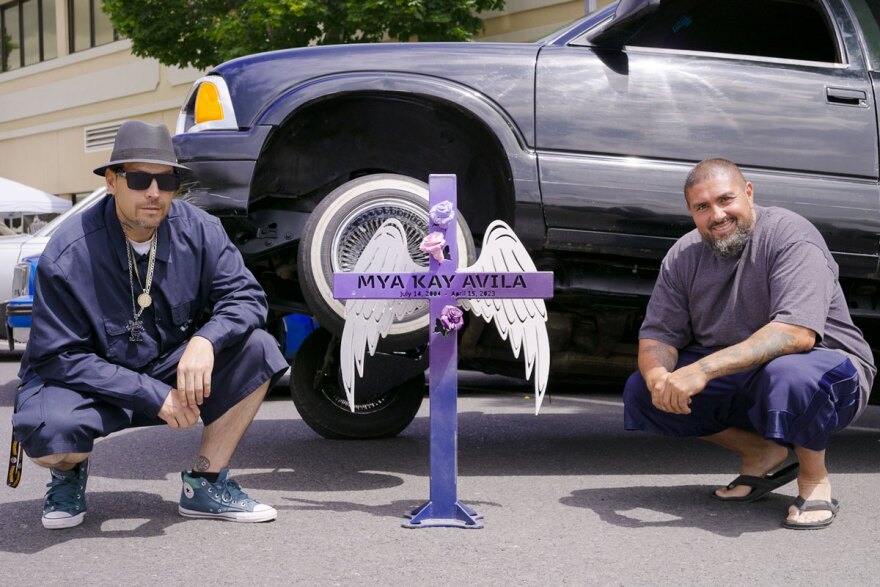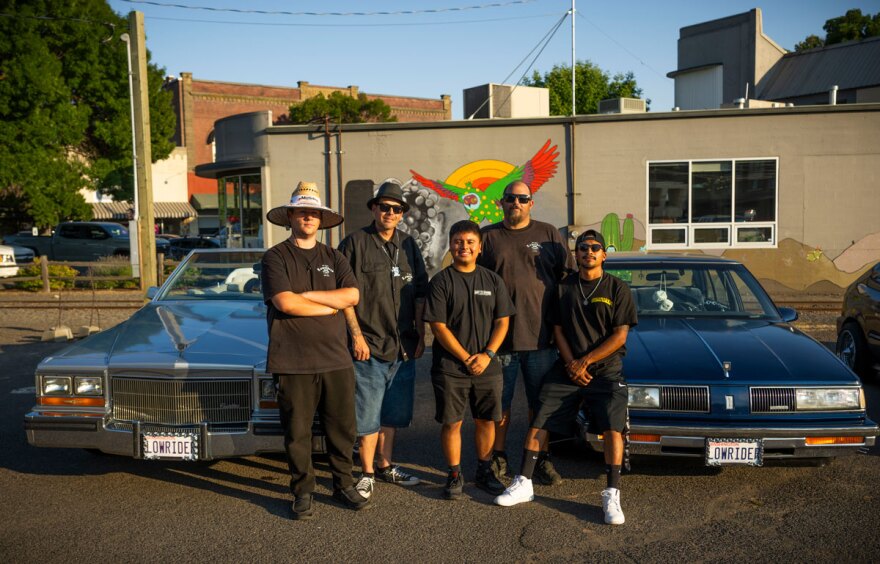Two Whitman College graduates are showcasing Washington’s lowrider community through a documentary that captures Chicano culture in the Pacific Northwest.
“Roll Modelz” follows the Washington State Lowriders Car Club, which is based in Walla Walla.
The documentary screens Saturday at the Milton-Freewater Drive In Theater in Milton-Freewater, Oregon, follows the Washington State Lowriders Car Club as they celebrate culture, family and pride through their cars. The club’s car show starts at 3 p.m. and the movie begins at 6:30 p.m.
Filmmakers Oliver Rodriguez Dickson and Yahir Tzec-Carrasco began the project in February, hoping to tell a story that’s rarely seen in eastern Washington: how Chicanos are using lowriding as both self-expression and as a way to build community.
“When the conversation started, we didn’t have cameras, we didn’t have audio equipment, we didn't have anything,” Dickson said. “I needed to do this, not just because it’s a cool story, but for myself too. I had never made something that was personal, something cultural.”

Dickson graduated in May. He grew up in Olympia and said the project helped him connect more deeply with his Mexican American roots. His grandfather immigrated from Mexico to the Walla Walla Valley through the Bracero Program in the 1950s.
It was a program that allowed immigrants to work in the U.S. His grandfather worked as a contractor and spent much of his time tinkering in the garage, an early memory of Dickson’s that now feels full circle.
“You don’t hear the word Chicano a lot in the Pacific Northwest,” Dickson said. “In California, it’s common, but up here it’s like people are almost in the background. Once you see it, though, it opens up this whole world.”
Tzec-Carrasco, who grew up in Portland and also graduated this past May, said he was drawn to the project after spotting the Washington State Lowriders Car Club cruising through Walla Walla last fall.
“I immediately became interested in learning about their history and why they’re in Washington,” he said. “It broke my perception that Chicano culture was only in California or Texas. I grew up calling myself Mexican, not Chicano, but this project helped me realize I have that connection too.”

The film follows the club and focuses on how the group honors Mya Avila — the daughter of one of the club's members.
Avila was killed in a car accident in 2023, and the club came together to rebuild her truck into a lowrider in her honor. The film centers on how that process united their families and community.
“Everyone in the club is first-generation Mexican American,” Tzec-Carrasco said. “I don’t think that’s a coincidence. Their parents immigrated here, and now they’re choosing to celebrate that heritage in their own way.”
The film captures more than chrome and hydraulics; it reveals a quiet cultural revival happening in Washington’s smaller cities.
In Walla Walla, lowriders cruise down Main Street, a part of town where many Latino residents said they avoid the area because it feels like a space they don’t feel included in. Their presence, Dickson said, is both celebration and protest.
“They’re not scared to penetrate that bubble,” Dickson said. “They play their music loud and show who they are. It’s this conscious decision to say, ‘We belong here too.’”

The filmmakers, who met during their first year at Whitman, worked on the project independently, borrowing cameras and recording equipment from the college. They often filmed on weekends and edited late at night.
Dickson said the process helped him find confidence in navigating different worlds.
“I’ve always code-switched between spaces,” Dickson said. “But this film made that feel like a strength instead of a burden. We can be a bridge using our voices, education, and storytelling to connect communities.”
Tzec-Carrasco said he hopes the documentary encourages others to share stories of Latino pride and resilience in places often overlooked.
“A lot of our families don’t have the filmmaking skills or resources to tell their own stories,” he said. “An institution isn’t going to fund a lowrider documentary. That’s why this is important. We’re using our privilege to represent our people.”
In Walla Walla, where the economy is known for wine and agriculture, Tzec-Carrasco said the film also challenges how the city sees itself.
“There’s not much coverage of immigrants or the Latino community here,” he said. “We want to change that to show that we’re part of the story too.”
The Saturday screening will be more than a film premiere — it’s a gathering of car clubs from across eastern Washington, and an evening of music, family and remembrance.

The directors also partnered with Dasha Levin, who produced the documentary. Levin, like Dickson and Tzec-Carrasco, said he also comes from a family of immigrants.
Levin said he has been “entrenched with lowrider culture.” His goal with the documentary was to highlight underserved communities during a time of uncertainty for immigrants.
“People are scared, they are afraid to go out. I think that it’s really important to make a film like this right now," he said.


